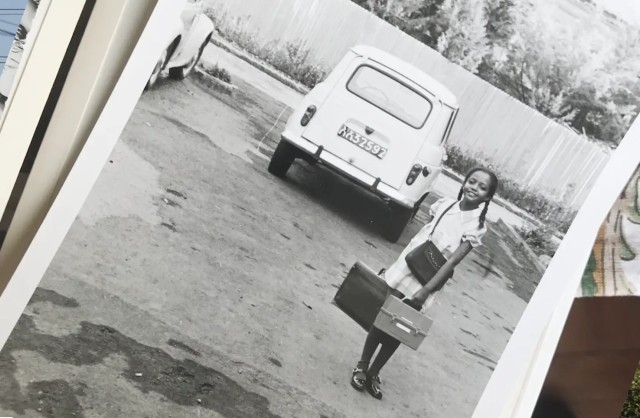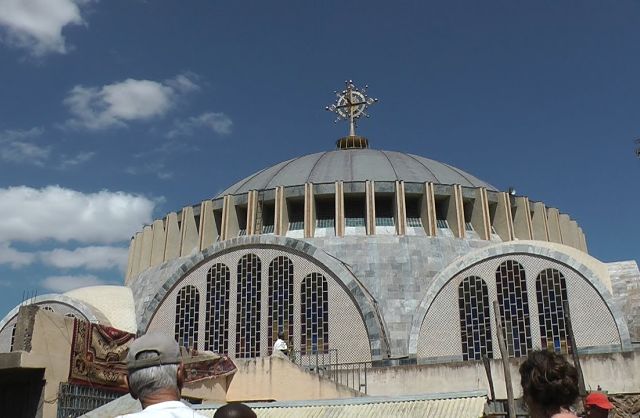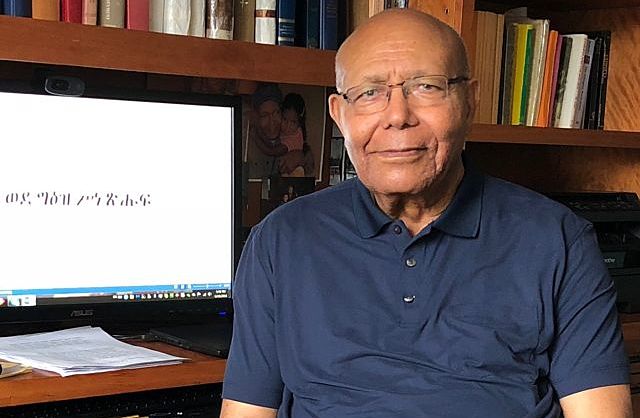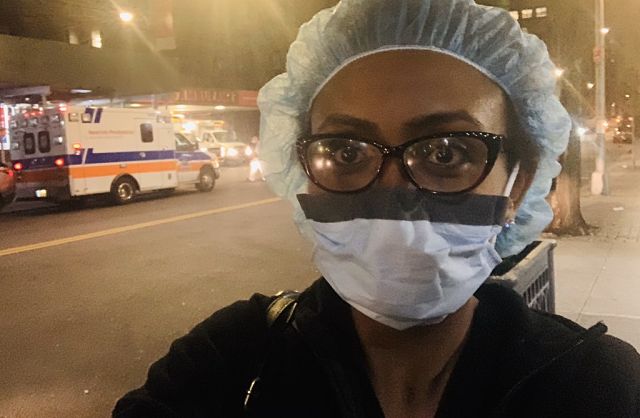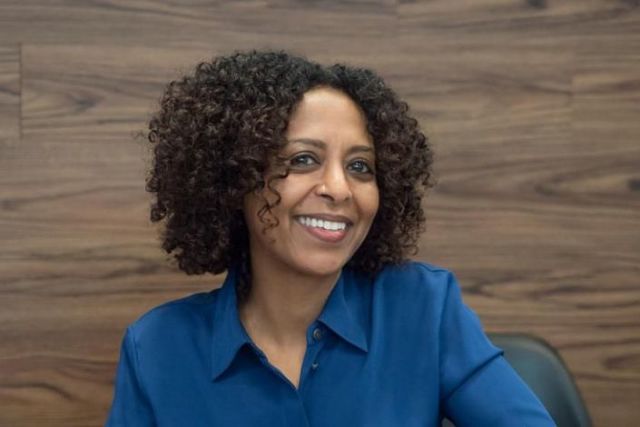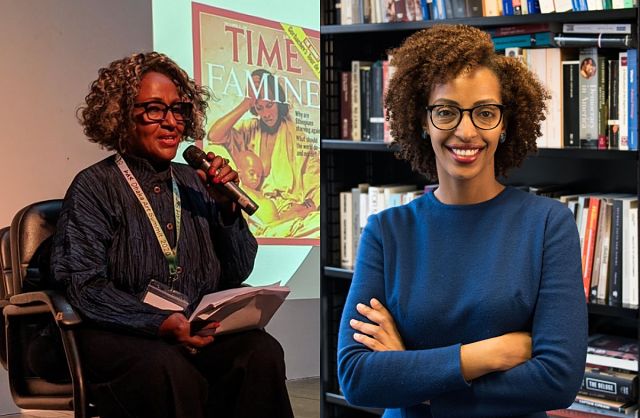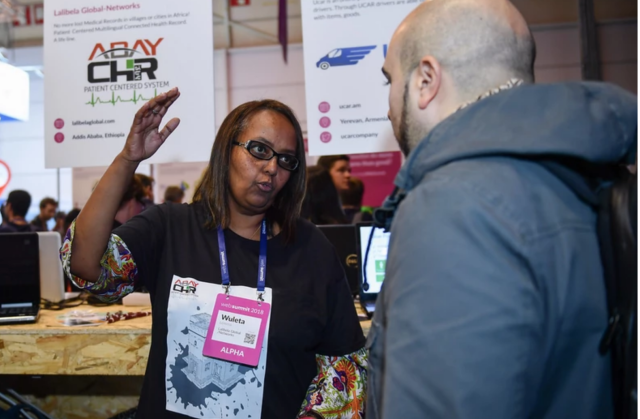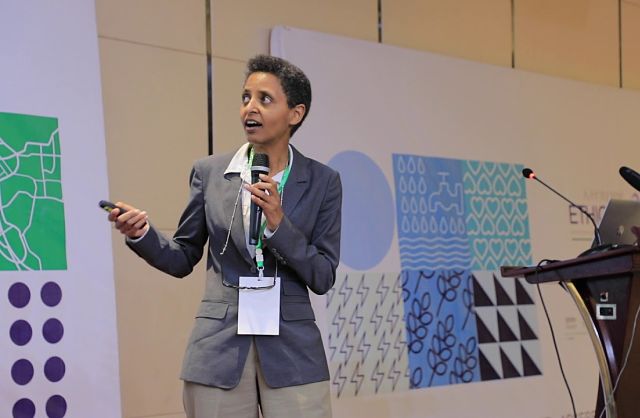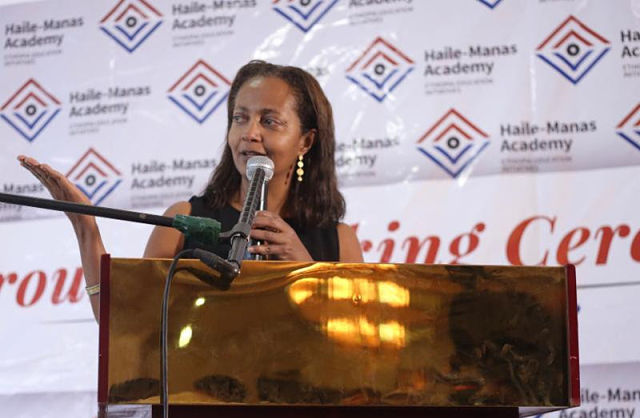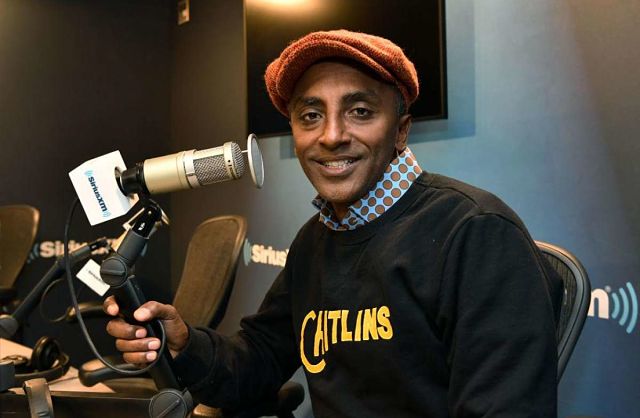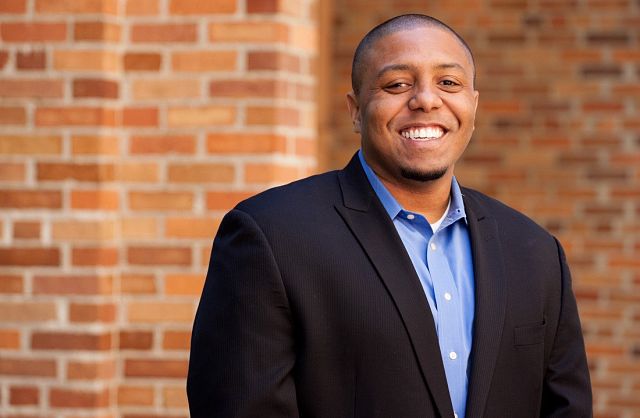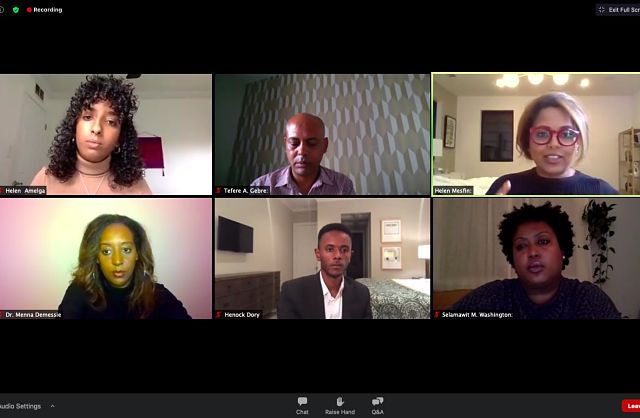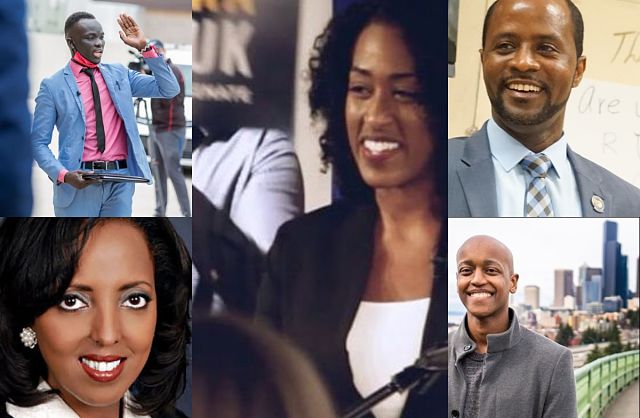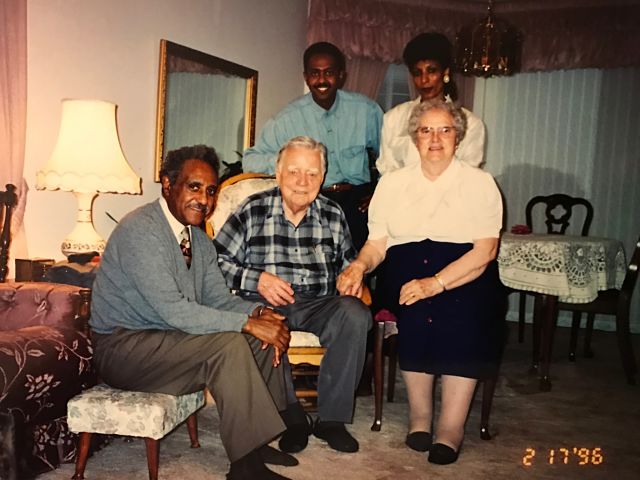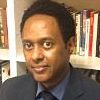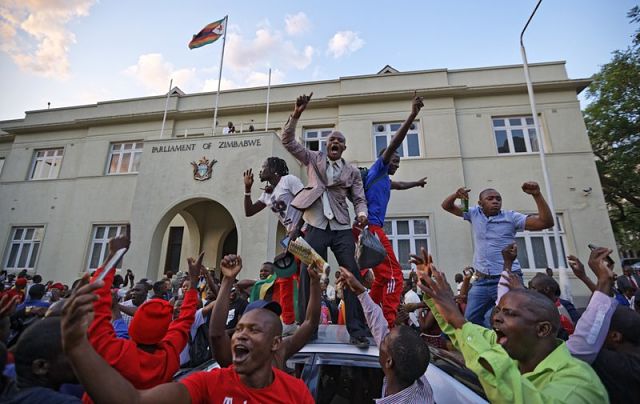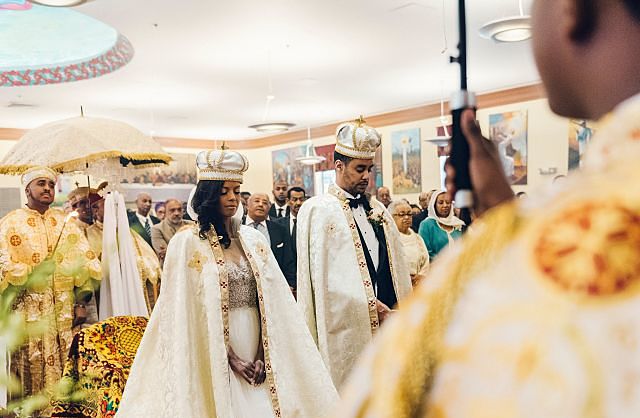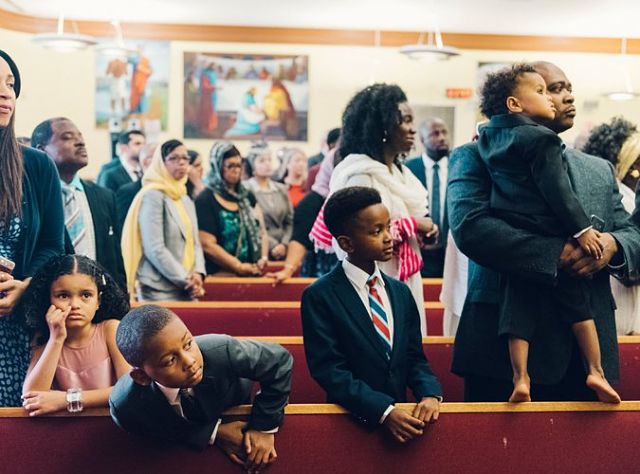 "Opening day was simply magical," says Rebecca Haile, co-founder and executive director of the U.S.-based non-profit organization Ethiopia Education Initiatives, Inc., which manages the school located in Debre Birhan, Ethiopia. "After nearly five years of hard work, it was wonderful to welcome the students, Ethiopia’s future leaders—they are the reason we took this on!" (Courtesy photo)
"Opening day was simply magical," says Rebecca Haile, co-founder and executive director of the U.S.-based non-profit organization Ethiopia Education Initiatives, Inc., which manages the school located in Debre Birhan, Ethiopia. "After nearly five years of hard work, it was wonderful to welcome the students, Ethiopia’s future leaders—they are the reason we took this on!" (Courtesy photo)
Tadias Magazine
By Tadias Staff
Updated: February 8th, 2021
New York (TADIAS) – Last month the Haile-Manas Academy (HMA), located in Debre Birhan, Ethiopia, officially welcomed its first students becoming among the top high schools in Ethiopia offering international-standard curriculum and a brand new and state-of-the-art campus.
The project is also a successful example of how Ethiopian Americans are investing in the future of their ancestral homeland. Rebecca, who lives in New York City, is a Lawyer, Mother, Author, Entrepreneur and Philanthropist who was also recently elected as Board Chair of EMILY’s List, one of the largest women associations in the United States.
“Ethiopian Americans can support us by spreading the word and making sure everyone in their network here and in Ethiopia knows about this ambitious new school,” Rebecca says regarding HMA. “And I invite everyone to join us in investing in Ethiopia’s future.”
Below is our Q & A with Rebecca Haile about the inauguration of the Haile-Manas Academy in Ethiopia.
TADIAS: You did it Rebecca! Congratulations on the opening of HMA! Please tell us about the
class of 2024 and how it feels to welcome the school’s first students?
Rebecca Haile: Thank you! Opening day was simply magical. After nearly five years of hard work, it was wonderful to welcome the students, Ethiopia’s future leaders—they are the reason we took this on! Our inaugural group, the Class of 2024, is made up of 35 incredible kids coming from different regions/linguistic backgrounds. They are already leaning into their new environment and I cannot wait to watch them take off.
TADIAS: The last time we featured HMA it was a few months after the ground-breaking ceremony to build the school from scratch in 2019. Please tell us about some of the major works that were done in between that culminated with the inauguration of the academy in January 2021?
Rebecca: I can put our work in three categories. First, we built an entire campus from the ground up, and it is just beautiful. Second, we hired extraordinary school leaders—our head of school and deputy head—who have in turn recruited an exceptional founding faculty and staff. And third, we’ve worked to spread the word in order to recruit students and to start building the network of supporters and donors we need to keep admitting deserving kids without regard to their ability to pay.
TADIAS: How was the project impacted by the pandemic and how are you managing the challenges so far?
Rebecca: It would be easier if you asked me how it wasn’t impacted! I’ve joked about needing Plans B, C, and D…We had construction delays, for example right how we have a temporary kitchen and dining hall set up while we wait for the permanent kitchen to be completed. Our student recruiting process was cut short in the spring as we could not travel to or around Ethiopia after February 2020, which is why we have a smaller class of 35 rather than of 100, as initially intended. Most significantly the start of school was delayed, from September 2020 to January 2021, and faculty now have the challenge of providing students what they need in a truncated academic year. Of course we are not alone here, as the problem of lost learning time due to the pandemic is a global phenomenon.
TADIAS: And what are the plans to mitigate COVID-19 for this academic year?
Rebecca: We are fortunate to be living and learning on a campus designed for many more people, so have enough space for social distancing in the dorms and classrooms. We have established a comprehensive set of COVID-19 protocols, such as monthly testing, vigilant mask-wearing and hand hygiene, and keeping students and their faculty advisors grouped in small “families” of 10-12 who eat all meals together. We are also limiting trips off campus and limiting visits from outsiders.
TADIAS: In addition to being housed in a brand-new, state-of-the-art building and campus the Haile-Manas Academy also offers an international-standard curriculum. Please share with us about the school’s management and teaching staff as well as some of the student programs?
Rebecca: A main theme for us is partnership. Our school leaders are Head of School Kari Ostrem, a Princeton trained engineer, and Tesfaye Kifle, who joined us from ICS in Addis. Both are extraordinary educators with years of experience and complementary skills. They have recruited a group of Ethiopian and international faculty who will teach their subjects in teams—our faculty will learn from each other and be more effective as a result.
In terms of teaching and programs, we have three organizing principles: rigor, relevance and relationships. Our courses cover the rigorous Ethiopian National Curriculum while building 21st Century skills such as creativity and collaboration. Our residential curriculum, which includes student-developed clubs, gives students the structure to be leaders in areas that are relevant to them. Finally, our advisory program, the on-campus family, gives every student the opportunity to build relationships with adults and students from across the country.
TADIAS: Please tell us about the application process for those students who want to join HMA next year. What are the academic and financial requirements?
Rebecca: Admission to HMA is merit based. Interested students are asked to submit a short letter of interest along with their middle school transcripts to info@ethiopiaed.org. Students who meet our minimum requirements will be invited to sit for the HMA admissions exams, which we hope to administer in several large cities, and top performers will then be invited for interviews after which we will extend offers of admission to finalists. Fees for tuition, room and board are around $10,000USD/year, and our desire is to admit students without regard to their ability to pay, to the extent possible. This first year, thanks to the support of generous donors, all 35 members of HMA’s Class of 2024 are receiving full scholarships.
The exact dates and locations of our admission events and entrance exams will be on our website as soon as they are confirmed, so all interested families should check in mid-February for details and the closest location for events and exams.
TADIAS: How can Ethiopians in America contribute and get involved with the Ethiopia Education Initiatives?
Rebecca: Ethiopian Americans can support us by spreading the word and making sure everyone in their network here and in Ethiopia knows about this ambitious new school. I hope everyone will sign up to receive our newsletters. And I invite everyone to join us in investing in Ethiopia’s future by making a contribution of any amount so we can admit deserving students without regard to their ability to pay. It is easy to make a one-time donation and/or sign up to be a monthly donor on our website here.
TADIAS: Is there anything else you would like to share with our readers?
Rebecca: I’d like to thank the many individuals who have helped us reach this milestone. It’s been so gratifying to see people embrace this model school as “our” collective project, for the benefit of Ethiopia. Tadias has been a part of that, thank you so much for being an advocate.
Also, since this is a magazine for Ethiopian Americans many of whom grew up in the US like me, I’ll share a small point of personal pride, which is that on opening day I gave my entire welcome speech in Amharic. I could not have done that three years ago—my Amharic has really improved! I know I made lots of mistakes, but I accomplished my goal of communicating with students and their families. It makes me really happy to think that I could model for our students–who will now be working hard to perfect their English—the importance of being a life-long learner, of taking risks and of not being afraid to make mistakes.
TADIAS: Thank you, Rebecca, and congrats again! We wish you all the best in 2021!
—
You can learn more about The Haile-Manas Academy and support the Ethiopia Education Initiatives at ethiopiaeducationinitiatives.org
Related:
Spotlight: The Haile-Manas Academy, A New World Class School in Ethiopia
Join the conversation on Twitter and Facebook





